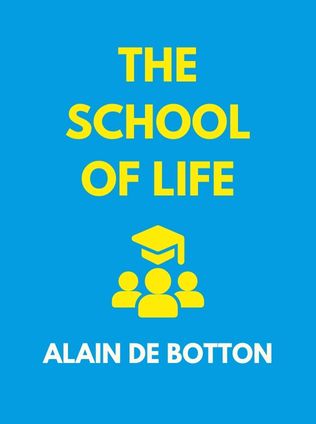
The School of Life
By The School of Life
Published 09/2020
About the Author
"The School of Life" is more than just a book; it's a concept brought to life by a collective of writers under the banner of The School of Life, an organization founded by philosopher Alain de Botton. Known for his thought-provoking and accessible writing, de Botton's work focuses on how philosophy can be applied to everyday life. The School of Life aims to provide insights and tools for living wisely and well, offering a range of educational materials, including books, courses, and therapy sessions. This book, "The School of Life," encapsulates the organization's mission to enhance emotional intelligence and self-understanding, drawing on philosophy, psychology, and art.
Main Idea
"The School of Life" argues that while we are well-educated in subjects like science and history, we lack formal education in emotional intelligence—the ability to understand and manage our own emotions and those of others. The authors suggest that this deficit leaves us ill-equipped to navigate the complexities of modern life, leading to poor decisions and unsatisfying relationships. By developing emotional intelligence in four key areas—self-knowledge, social interactions, romantic relationships, and work—we can lead more fulfilling lives.
Table of Contents
- Introduction
- We Lack Emotional Intelligence
- Emotional Intelligence About Yourself
- Emotional Intelligence About Others
- Emotional Intelligence in Romantic Relationships
- Emotional Intelligence at Work
- Conclusion
We Lack Emotional Intelligence
The authors begin by pointing out a glaring gap in our education system: we are not taught how to handle emotions. While we learn math and history, we receive little guidance on managing disappointment, anger, or loss. This lack of emotional education is a major oversight, as it leaves us vulnerable to making poor choices based on misunderstood feelings. For instance, when faced with conflict, many of us react instinctively—yelling, withdrawing, or blaming—rather than thoughtfully responding. This reactive behavior often exacerbates problems rather than solving them.
The book defines emotional intelligence as the ability to understand and manage both your own emotions and those of others. It’s about recognizing your feelings, communicating them effectively, and practicing empathy. For example, instead of giving your partner the cold shoulder when you're upset, emotional intelligence would have you express your disappointment calmly and constructively. This approach not only resolves the immediate issue but also strengthens the relationship.
The consequences of lacking emotional intelligence are profound. Without it, we find ourselves repeatedly making the same mistakes, particularly in our relationships and work lives. We might enter one unfulfilling relationship after another, or continually clash with colleagues, not realizing that the root of these issues lies in our inability to understand our emotional needs and those of others. The authors argue that this pattern of poor decision-making leads to a life of dissatisfaction and strained relationships.
Sign up for FREE and get access to 1,400+ books summaries.
You May Also Like
The Subtle Art of Not Giving a F*ck
A Counterintuitive Approach to Living a Good Life
By Mark MansonRich Dad Poor Dad
What the Rich Teach Their Kids About Money - That the Poor and Middle Class Do Not!
By Robert T. KiyosakiHow To Win Friends and Influence People
The All-Time Classic Manual Of People Skills
By Dale CarnegieFreakonomics
A Rogue Economist Explores the Hidden Side of Everything
By Steven D. Levitt and Stephen J. Dubner



















